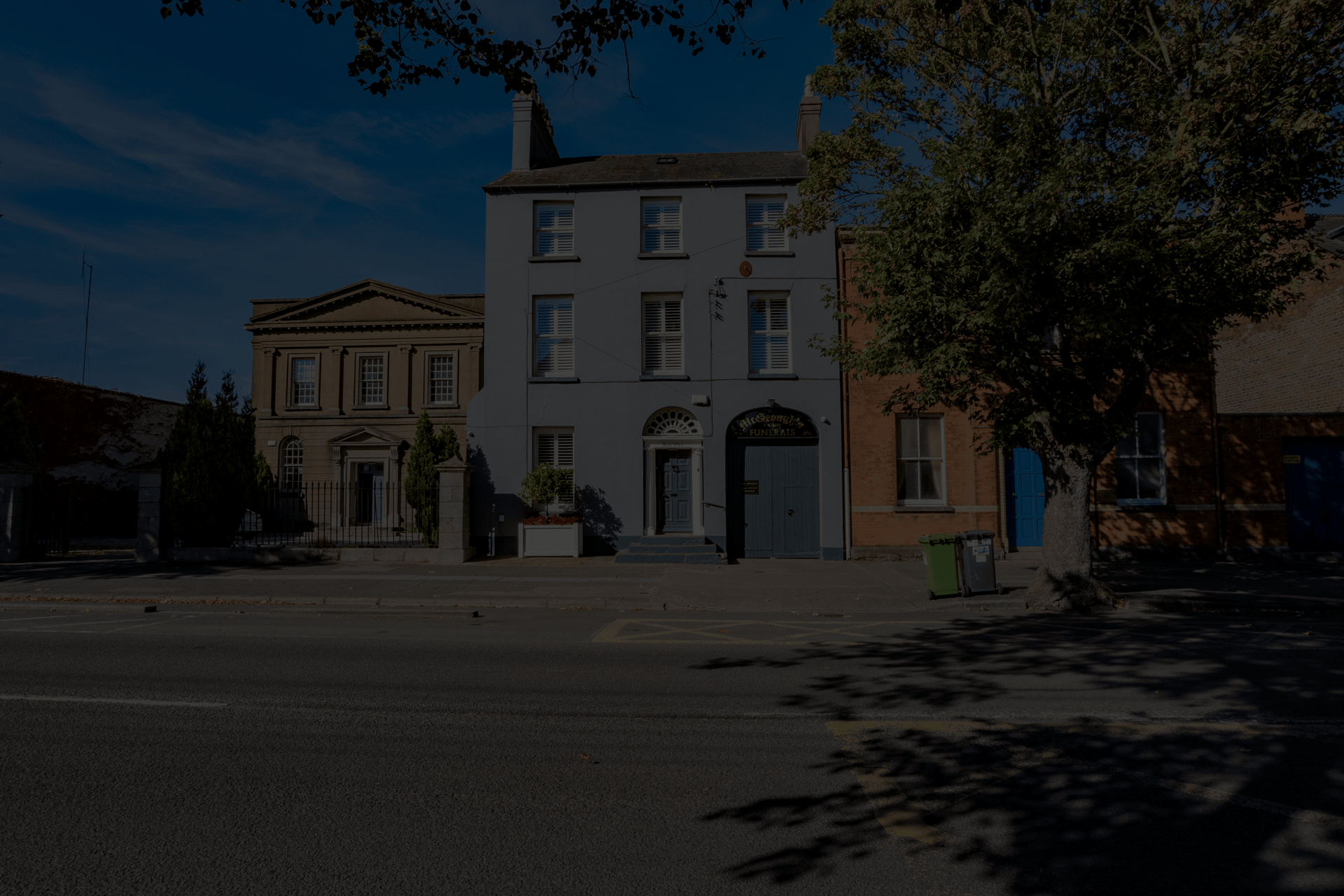
QUESTIONS
FREQUENTLY ASKED
In this section you will find some of our frequently asked questions. If there is any question not answered here please contact us and one of our Funeral Directors will be happy to assist you.
Who should be informed of the Death?
It is a legal requirement in Ireland that every death that takes place in the State must be recorded and registered. Records of deaths in Ireland are held in the General Register Office, which is the central civil repository for records relating to Births, Marriages and Deaths in Ireland. You can apply for a copy of a death certificate in any Registrar of Births, Marriages and Death or to the General Register Office.
What is the role of the funeral director/undertaker?
A funeral director’s role is to provide comprehensive support and guidance, taking care of all arrangements related to the burial or cremation. This includes securing burial plots, organising newspaper notices, arranging religious or non-religious services, and coordinating with florists and other service providers. We also handle transport for the deceased and mourners, ensuring that everything runs smoothly and respectfully.
In addition, we assist with all necessary documentation, both before and after the funeral, to ease the administrative burden on families during this difficult time. As a member of the Irish Association of Funeral Directors, we adhere to a strict Code of Practice, ensuring the highest standards of service and professionalism in every aspect of our work.
What is a post mortem?
A post-mortem, also known as an autopsy, is an examination conducted by a pathologist after a death when it’s necessary to determine the medical cause of death. This procedure is usually requested by a coroner if the cause of death is unclear or if more information is needed for legal or medical purposes.
In most cases, a post-mortem is not required, as the cause of death can be certified by a doctor who treated the deceased person in the months leading up to their passing, such as a GP or hospital doctor. Post-mortems are carried out with the utmost respect and professionalism, providing clarity for the family and assisting with any necessary legal processes.
What is Embalming?
Embalming is a process that helps to preserve the body from the time the deceased person comes into the care of the funeral director until the time of the committal. It involves carefully treating the body to temporarily slow down the natural processes that occur after death, allowing families the opportunity for viewing and spending time with their loved one if they wish. This procedure is performed with respect and care, ensuring the deceased is presented in a peaceful and dignified manner.
How much does a Funeral cost?
The cost of a funeral typically includes two main types of expenses: third-party fees and direct service costs. Third-party fees cover essential expenses paid by the funeral director on your behalf, such as cemetery or cremation fees, officiant fees, and floral tributes. Direct costs are those associated with the funeral service itself, which can vary depending on choices like the venue, type of coffin or urn, and any personal touches you wish to include.
We understand that every family has unique needs and preferences. To provide clarity and help you plan confidently, we’re happy to supply a detailed estimate tailored to your wishes. Simply contact us to discuss your requirements.
Support Services
Citizens Information (Bereavement & Death) Visit Website
Irish Hospice Foundation Visit Website
Barnardos Bereavement Counselling for Children Visit Website
Deparment of Social Protection Visit Website
A Little Lifetime Visit Website
Aware (Support through Depression) Visit Website
Anam Cara Visit Website


